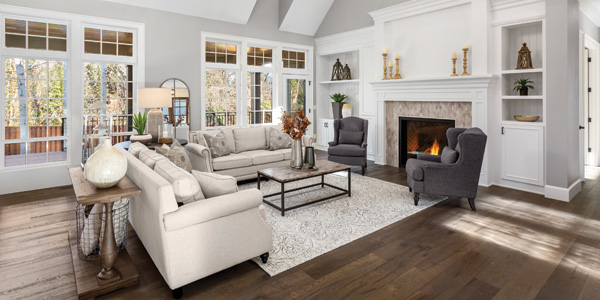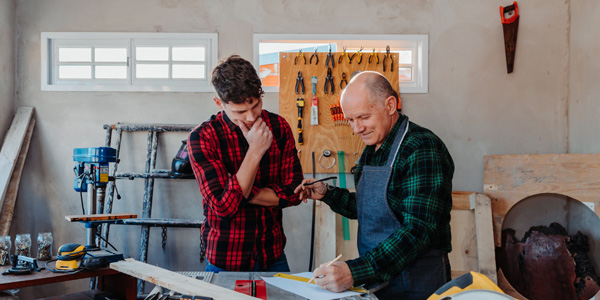At recent gatherings of friends in senior hobby groups, it seems the conversation invariably centers around how much of a deposit each couple or individual has put down to reserve their spot in one of the local upscale retirement communities. I seems the two of you are the only ones planning to “stay home.”
On the other hand, you’ve come to realize that an “aging-in-place” choice comes with costs of its own. Other than in your bathroom, you are both dead set against what you call the “nursing home look”, with railings and “grab bars; you’ve been researching different re-design options to add safety without creating an “old people” look.
While your plan is to do the finishing touches such as interior painting by yourselves, the kitchen, bedroom, and bathroom remodels are going to represent substantial costs over a six to nine-month period of time. While your estimated costs, even spread over a couple of years, will undoubtedly prove be far, far less than the “forever” obligations your friends are contemplating, your monthly cash flow is going to be severely impaired. Not only will you be substantially tapping your joint investment account, you’ll need to draw funds from each of your retirement plan portfolios.
In creating a safe and aesthetically pleasing setting in which to spend your active senior lives, why not consider using the equity you’ve spent decades accumulating in the home itself? With a reverse mortgage, you can avoid “impairing” the monthly cash flow from investments, while avoiding taxable withdrawals from retirement accounts. With a HECM line of credit, whatever portion of your credit line has not been used will be guaranteed to grow at the same rate as that being charged on the loan.
At an upcoming gathering, you can confidently inform your friends that while they have decided to move into a retirement facility, the two of you will be “staying home by choice”.
If you’d like to see what you might qualify for with a reverse mortgage in Indiana, or to download your Reverse Mortgage Guide Click Here (and scroll down).
. .
Borrower must occupy home as primary residence and remain current on property taxes, homeowner’s insurance, the costs of home maintenance, and any HOA fees.









